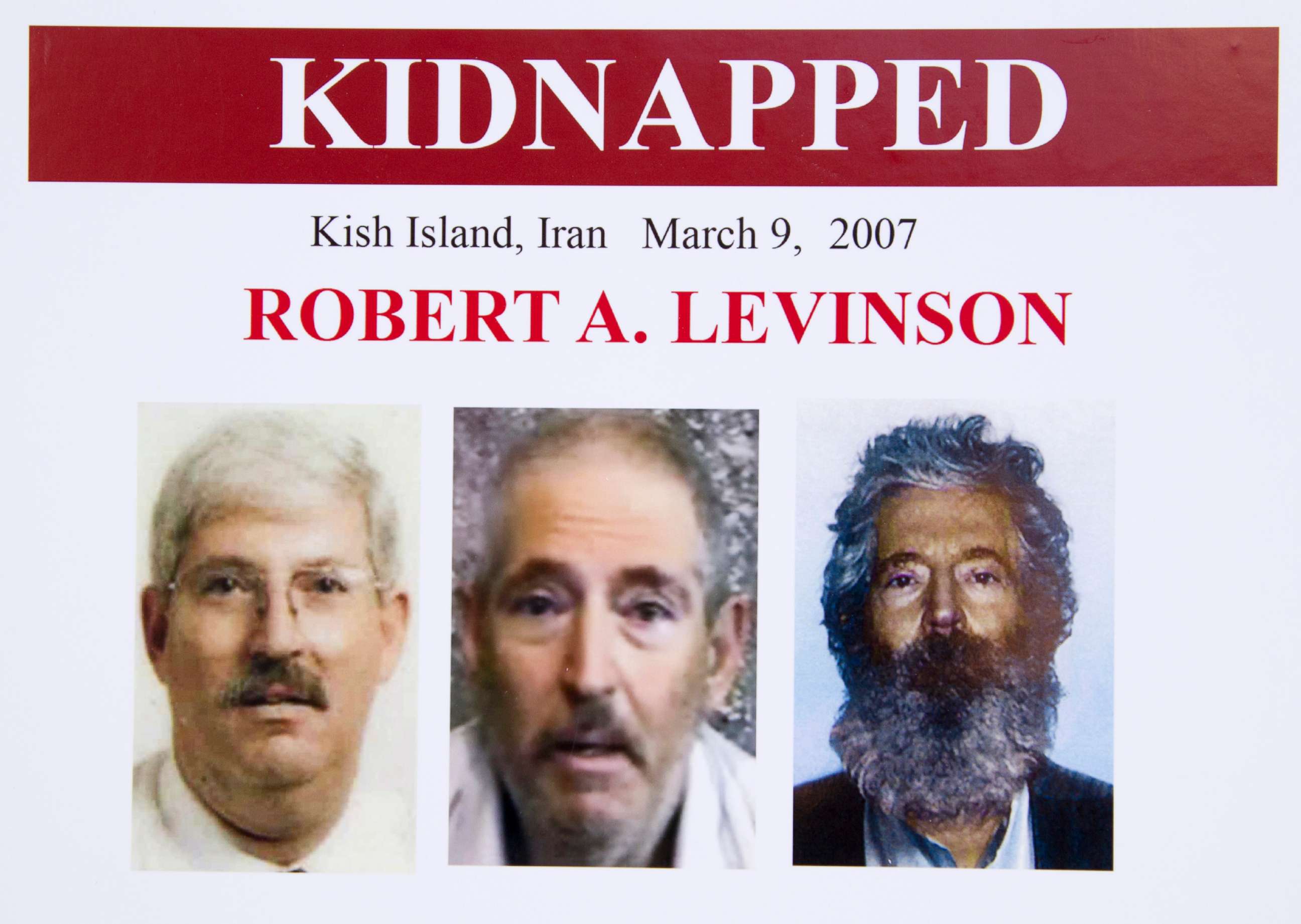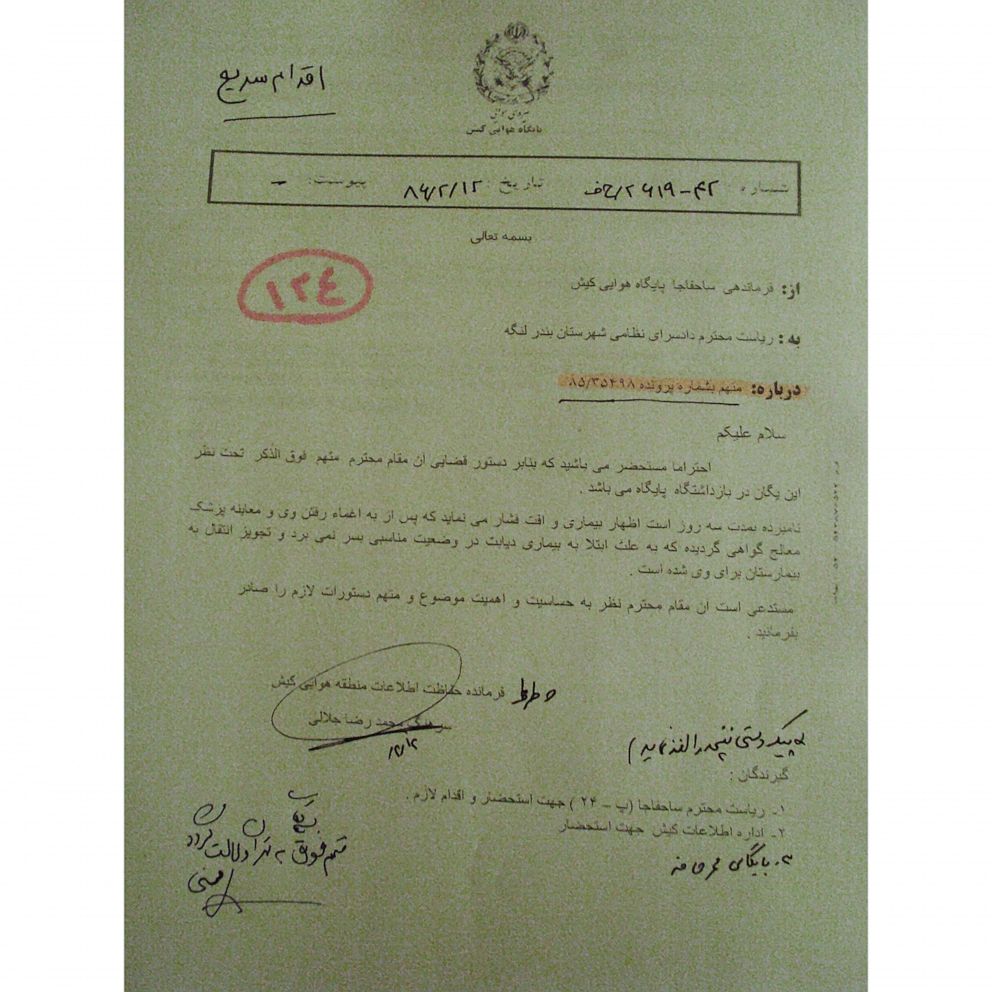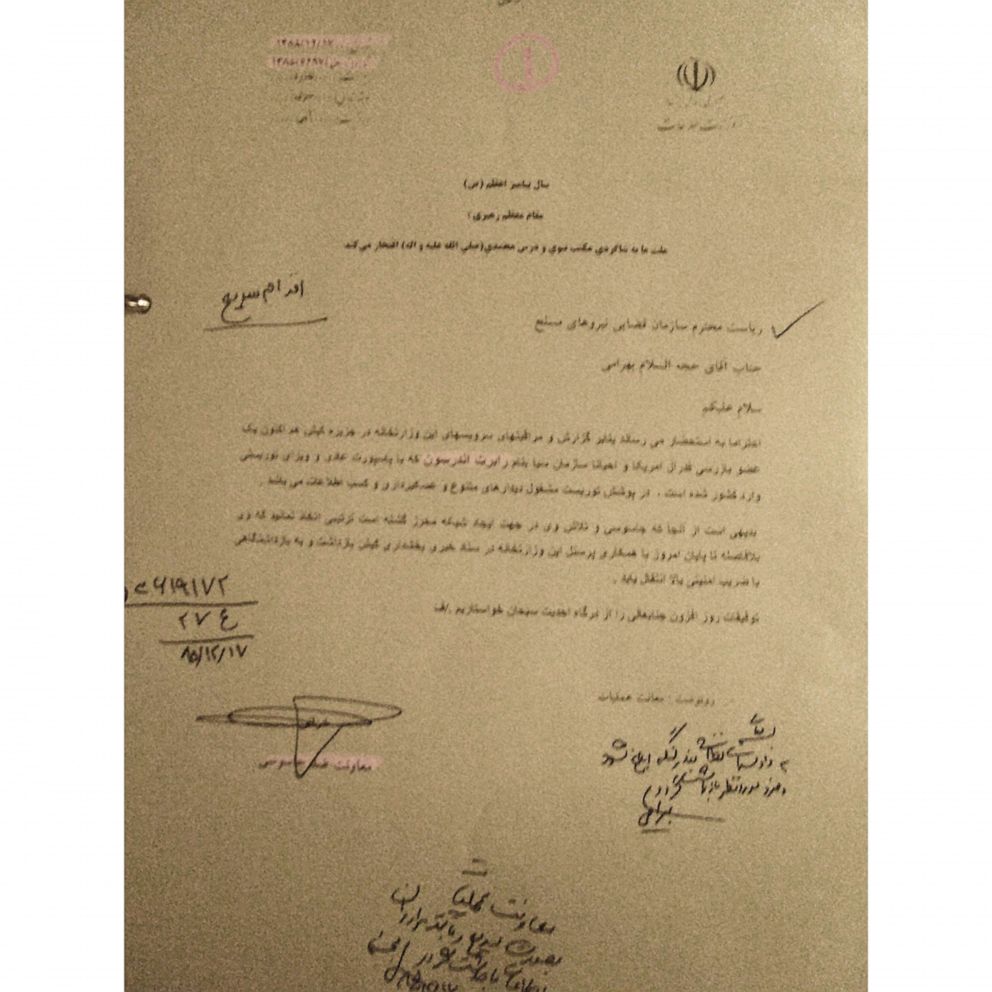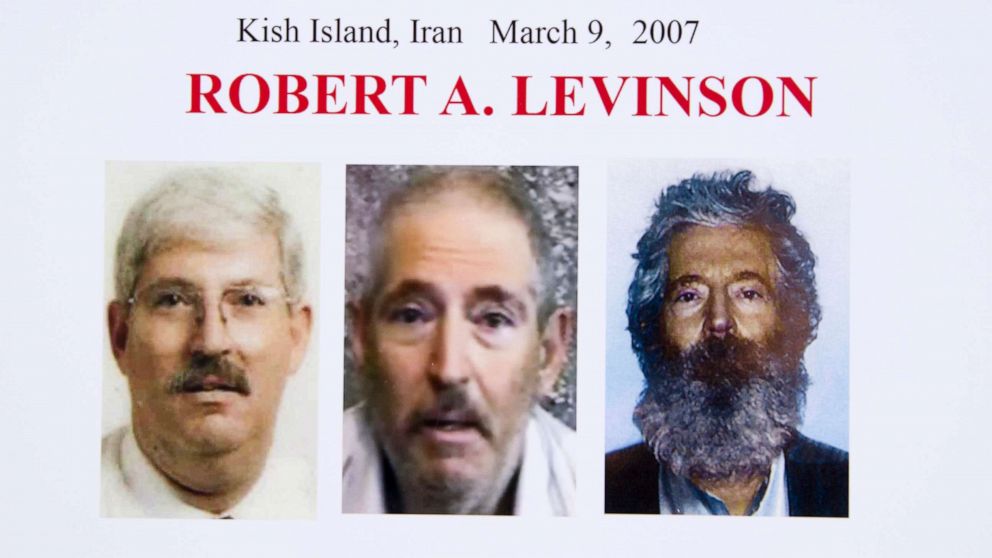Documents may be breakthrough in case of FBI veteran Robert Levinson, who vanished in Iran
Documents obtained years ago by the family of retired FBI agent Robert Levinson, who has been missing in Iran for more than a decade, may provide the most convincing evidence yet that he was arrested and held by Iranian intelligence agents after a new statement from the country recently came to light.
Levinson, a veteran agent and specialist in Russian organized crime, vanished on March 9, 2007, after arriving on the remote Kish Island while working on a murky CIA contract for intelligence analysts at the agency. For the first seven years he was missing, U.S. officials said Levinson was working as a private investigator and was "not a U.S. government employee."
The purported Iranian files took on new significance after the U.N. revealed Tehran had recently admitted to having an "ongoing" judicial inquiry into Levinson, at the same time a more precise English translation of the Farsi-language documents his family has had for nine years appeared to reveal that his arrest in 2007 was from a "judicial" order by the Iranian military.
The word "judicial" had been missing in an English translation by the FBI of the apparent 2007 arrest order given to the family years ago.
News of the Iranian admission to the U.N. this month was followed by the Trump administration upping the reward for information leading to Levinson's recovery to $25 million -- the same amount offered in the past for information leading to the location of terrorist leaders Osama bin Laden and Abu Bakr al-Baghdadi.
"We have always believed that someone on Kish Island made a horrible mistake in arresting Bob -- which is confirmed by these documents. Now is the time for Iranian authorities to do what they know is right and send this wonderful husband, father and grandfather home to us," his wife, Christine Levinson said in a statement to ABC News.

The two single-page documents, which an Iranian journalist provided to the Levinson family in 2010, appear to include an order for his "arrest" by Ministry of Intelligence agents on Kish Island following a "judicial order" by a military prosecutor, which came the day before Bob Levinson went missing. But the potential significance of this language in the 2007 document about the "judicial order" only became clear last month when the UN revealed the new Iranian statement, a source close to the case told ABC News.
A source close to the Levinson case provided the purported Iranian military reports to ABC News after the Iranian government made the surprising statement last month to the UN that there is an "ongoing" court case involving the missing American — after 12 years of denials he was ever in their custody.
The first document, dated March 8, 2007, states that Levinson -- erroneously referred to as "Robert Anderson" -- had an FBI background, "may be CIA," and was alleged he was engaging in "spying activities."
"He is here using the cover of a tourist while conducting various meetings, taking pictures and gathering information," an Iranian counterintelligence official appears to have informed military prosecutor Hojatol-Islam Bahrami, who then ordered Levinson's immediate arrest by "MOIS [Ministry of Intelligence] brothers" in a handwritten reply on the typed memo.
The second document appears to show a senior commander at Kish Air Base, an Iranian military facility, asking military prosecutors on May 2, 2007, what to do after Levinson fell ill in detention and collapsed into a coma.
"Greetings, I hereby inform Your Excellency that according to your judicial order, the accused subject is under the surveillance of this military unit at a detention center at this base," writes an individual who identifies himself as Col. Mohammad Reza Jalali, the base's "commander of intelligence protection."
"A doctor examined him and he was diagnosed to have diabetes and noted that he is not in a good condition and ordered to transfer him to a hospital," Jalali continued. "In regard to the sensitivity and importance of this matter and the accused, please give us the necessary orders that should be taken in this regard."

ABC News was not immediately able to verify Bahrami or Jalali’s existence as officers serving the Islamic Republic of Iran, but a source close to the case said the Levinson family has verified their names and roles from their own lawyer in the country.
The Levinson family says they handed the alleged arrest order and report of Levinson’s illness on state security letterhead to Iran’s ambassador to the United Nations in 2010. A few months later, a mysterious proof of life video surfaced in which Levinson pleaded for help.
"Please help me get home. Thirty-three years of service to the United States deserves something," a gaunt Levinson said in the video.
Washington Post columnist and former Iran hostage Jason Rezaian reported this month that in response to a Levinson family complaint three years ago to the United Nations Working Group on Enforced or Involuntary Disappearances, the U.N. had noted that it had received a new message from Tehran in October.
"According to the statement of Tehran’s Justice Department, Mr. Robert Alan Levinson has an ongoing case in the Public Prosecution and Revolutionary Court of Tehran," the U.N. reported.
Iranian officials quickly backpedaled and said their communication with the UN was merely acknowledging a missing person case existed for Levinson.
Sources close to the Levinson matter say the recent admission of a pending case before Iranian courts backs up the language in the 2007 Kish Island report saying he was arrested after a "judicial order" by a military prosecutor.
President Trump jumped on the news and tweeted Nov. 10: "If Iran is able to turn over to the U.S. kidnapped former FBI Agent Robert A. Levinson, who has been missing in Iran for 12 years, it would be a very positive step. At the same time, upon information & belief, Iran is, & has been, enriching uranium. THAT WOULD BE A VERY BAD STEP!"
Trump has made hostage recovery a hallmark of his presidency, boasting he has freed almost two-dozen American captives. Levinson's family say they were thrilled and buoyed this week when Taliban hostage Kevin King was freed after three years in a prisoner exchange, along with Australian fellow university professor Timothy Weeks.
Sources close to the Levinson case say the documents the family obtained nine years ago were given to U.S. officials at the time, who in the years since have told the family they never were able to authenticate them. A U.S. official told ABC News that the FBI had no reason to believe they were forgeries.
"The FBI is aware of the documents and while we cannot discuss specific details of the investigation, over the past 12 years the FBI has worked diligently to follow every lead into Bob’s abduction," said a statement provided to ABC News by the Bureau.
ABC News was only provided photos of the two purported Iranian documents, which therefore cannot be authenticated with absolute certainty, experts say.

However, one Iranian-born former top U.S. official, Ladan Archin, said they "seem legit" based not just on appearance but on her deep familiarity with how regime commanders speak with each other in sensitive military communications.
"If these files are legit, it shows the Iranian government knew where Bob Levinson was and this specific Iranian official [Bahrami] gave orders to arrest him," Archin, who served for five years as the Iran Country Director at the Pentagon during the Bush administration, told ABC News yesterday.
In reviewing the Iranian files at the request of ABC News, Archin found small errors in the FBI's English translation and some words missing, which the Levinson family and their advisers see as newly significant, including how the Iranians repeatedly referred to Levinson not as a "subject" but as "the accused." The most important words missing in the original English translation appear to pinpoint specific Iranian offices involved in his detention, such as that the arrest order was "judicial" and that it was carried out specifically by "MOIS brothers" -- meaning Ministry of Intelligence agents.
Archin, who was born and raised in Iran and speaks Farsi as a native language, also worked to fight terrorism finance at the U.S. Treasury Department, where she continued following developments on the Levinson abduction after leaving the Department of Defense shortly after he went missing in 2007.
"The regime's denials are empty. There is a chance they kept this very close-hold within the regime -- but no chance they didn't know," Archin added.
Iran does not have an embassy on U.S. soil but the regime's representatives at the United Nations did not respond to a request for comment by ABC News last week.
Last February, ABC News reported that the Levinson family had received many new tips about their long missing patriarch, even after he was written off as dead by the Obama administration.
In 2016, Levinson’s family was shocked that he wasn't released or otherwise accounted for when Rezaian and three other Americans held captive were set free by Tehran when the United States and Iran finalized the terms of deal to halt Iran’s nuclear weapons program.
Several current and former senior government officials told ABC News that intelligence assessments at the time of the hostage negotiations concluded that Levinson, 72, had probably died in captivity, in spite of what all of those officials agreed was an almost complete absence of any hard evidence of his demise beyond his advanced age, health problems and the duration of his captivity.
"It was nowhere near 100-percent and it wasn’t based on a scintilla of evidence at all, just pure speculation," said one of several senior officials briefed on the Levinson case who spoke to ABC News earlier this year.
Iranian representatives at the bargaining table shelved accounting for Bob Levinson and U.S. negotiators agreed not to let the nuclear deal get hung up on the fate of an American they concluded was no longer alive, confirmed the officials who spoke to ABC News, a mix of political officials from the Obama and Trump administrations as well as career officials.




